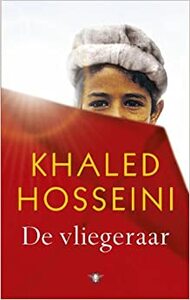You need to sign in or sign up before continuing.
Take a photo of a barcode or cover
challenging
dark
emotional
hopeful
reflective
sad
tense
medium-paced
Plot or Character Driven:
A mix
Strong character development:
Yes
Loveable characters:
Complicated
Diverse cast of characters:
Yes
Flaws of characters a main focus:
Yes
challenging
dark
emotional
hopeful
informative
reflective
sad
medium-paced
challenging
dark
emotional
slow-paced
Plot or Character Driven:
A mix
Strong character development:
Yes
Loveable characters:
Complicated
Diverse cast of characters:
Yes
Flaws of characters a main focus:
Yes
dark
emotional
medium-paced
Plot or Character Driven:
A mix
Strong character development:
Complicated
Loveable characters:
No
Diverse cast of characters:
Complicated
Flaws of characters a main focus:
Yes
What a powerful first chapter. It was so good I read it twice in the beginning, and returned to it once more when I finished the book. It was intriguing, dramatic, and beautifully worded.
Sadly, the rest of the book didn't quite live up to that first chapter.
Up until the incident with Hassan, the story was interesting and reflective, but then it quickly slid into melodrama and predictable plot directions. I felt that the author tried a bit too hard to make his tale symbolic and haunting but ultimately failed to evoke much empathy in me for his characters.
It's a pity because I really wanted to like this book. The first chapter is one of the best beginnings I've ever read.
Sadly, the rest of the book didn't quite live up to that first chapter.
Up until the incident with Hassan, the story was interesting and reflective, but then it quickly slid into melodrama and predictable plot directions. I felt that the author tried a bit too hard to make his tale symbolic and haunting but ultimately failed to evoke much empathy in me for his characters.
It's a pity because I really wanted to like this book. The first chapter is one of the best beginnings I've ever read.
Hmm, I suppose I have an unpopular opinion about this book, given that plenty of people seemed to have liked it.
See, this book reads like it was meant to be a tear-jerker. There were so many coincidences, and the main character had a lot of self-pity. Urgh. Anyway, this book is about Amir, who was the son of a prominent Afghan man, and who grew up with Hassan, a servant. Amir and Hassan were of different ethnicities: Amir is Pashtun, while Hassan is Hazara. This ethnic difference is crucial: Hazaras are Shia, while Pashtuns are Sunni. Later on, when the Taliban takes over Afghanistan, the Hazaras are eradicated.
Anyway, the narrative is centred on Amir, who grows up relatively well-off, until the war comes, and his family immigrates to the USA. Later on, his childhood demons come back and haunt him, when he is faced with the opportunity to correct a previous wrong which he did.
I won't write more about the plot: it is after all complex, and too many coincidences and plot holes were there to make it believable. For example, the main character seems to be able to go in and out of Pakistan and Afghanistan quite easily. Whatever happened to visas? Also, he takes an Afghan child with him on return, without papers! I am pretty sure that Afghan child, a member of a persecuted ethnic minority by the Taliban, don't even have a passport. The way the narrative goes makes it sound like crossing the Khyber Pass is just like crossing over to another European country within the Schengen Area.
Oh, the main character Amir makes me want to tell him to cry me a river. This guy is so much wallowing in self-pity. Perhaps I just don't get this whole attitude of living in tradition. I mean, this guy immigrates to the USA, escaping from the Russians in Afghanistan, yet it seems that he never left the country. All of the people he mingled with in the USA were Afghans. I am an immigrant as well, but I don't cocoon myself in the Filipino community. I have friends from various nationalities. So I don't get this whole way of living where you value honour and tradition in San Francisco because all of the people who you talk to are also people who left the country like you. Stop acting like you're fresh off the boat.
There's also so many coincidences in this book, that it feels like it's all deus ex machina. For example, Amir keeps on bumping to people from the past. His old school bullies later turn up as Taliban officials. Old neighbours show up later on, old faculty members who were supposed to know his long dead mother later suddenly show up as a beggar on the street. As I was reading this book, I cannot help but think of my own past, and I must say, I don't have any contact with people from the past. It makes me think that it is such an ironic life for Amir, who escaped the past by going to the USA, yet continually lives in its ghost.
Overall, I must say I didn't like this book. It definitely reads like it was something written in order to make easily-moved individuals cry. From the beginning, it felt like the main character wanted you to sob at his plight. Sorry, but I couldn't care less about your redemption. I give this book 2 out of 5 stars.
See my other book reviews here.
See, this book reads like it was meant to be a tear-jerker. There were so many coincidences, and the main character had a lot of self-pity. Urgh. Anyway, this book is about Amir, who was the son of a prominent Afghan man, and who grew up with Hassan, a servant. Amir and Hassan were of different ethnicities: Amir is Pashtun, while Hassan is Hazara. This ethnic difference is crucial: Hazaras are Shia, while Pashtuns are Sunni. Later on, when the Taliban takes over Afghanistan, the Hazaras are eradicated.
Anyway, the narrative is centred on Amir, who grows up relatively well-off, until the war comes, and his family immigrates to the USA. Later on, his childhood demons come back and haunt him, when he is faced with the opportunity to correct a previous wrong which he did.
I won't write more about the plot: it is after all complex, and too many coincidences and plot holes were there to make it believable. For example, the main character seems to be able to go in and out of Pakistan and Afghanistan quite easily. Whatever happened to visas? Also, he takes an Afghan child with him on return, without papers! I am pretty sure that Afghan child, a member of a persecuted ethnic minority by the Taliban, don't even have a passport. The way the narrative goes makes it sound like crossing the Khyber Pass is just like crossing over to another European country within the Schengen Area.
Oh, the main character Amir makes me want to tell him to cry me a river. This guy is so much wallowing in self-pity. Perhaps I just don't get this whole attitude of living in tradition. I mean, this guy immigrates to the USA, escaping from the Russians in Afghanistan, yet it seems that he never left the country. All of the people he mingled with in the USA were Afghans. I am an immigrant as well, but I don't cocoon myself in the Filipino community. I have friends from various nationalities. So I don't get this whole way of living where you value honour and tradition in San Francisco because all of the people who you talk to are also people who left the country like you. Stop acting like you're fresh off the boat.
There's also so many coincidences in this book, that it feels like it's all deus ex machina. For example, Amir keeps on bumping to people from the past. His old school bullies later turn up as Taliban officials. Old neighbours show up later on, old faculty members who were supposed to know his long dead mother later suddenly show up as a beggar on the street. As I was reading this book, I cannot help but think of my own past, and I must say, I don't have any contact with people from the past. It makes me think that it is such an ironic life for Amir, who escaped the past by going to the USA, yet continually lives in its ghost.
Overall, I must say I didn't like this book. It definitely reads like it was something written in order to make easily-moved individuals cry. From the beginning, it felt like the main character wanted you to sob at his plight. Sorry, but I couldn't care less about your redemption. I give this book 2 out of 5 stars.
See my other book reviews here.
dark
emotional
medium-paced
Plot or Character Driven:
A mix
Strong character development:
Yes
Loveable characters:
Complicated
Flaws of characters a main focus:
Yes
I've heard so much about this book prior to reading it. Thankfully I managed to avoid watching the film adaptation as well. It is indeed a very well written book. The prose is excellent, as is the character development and plot progression. Was it a huge tearjerker like so many of my friends described it to be? I say it depends on what kind of literature you've been exposed to already. The only part that really made me cry is the part where Sohrab tries to kill himself. For the rest of the book I was so preoccupied with feeling mad at Amir that I kept having to pause my reading because I was getting so upset at him. The tone of the story reminds me of A Fine Balance. However, I must say that The Kite Runner, despite having a powerful message, felt like it aimed to be a best-seller, while A Fine Balance is an astute and profound observation of the cruelties of life and the people who live it.
adventurous
challenging
emotional
hopeful
inspiring
reflective
sad
tense
medium-paced
Plot or Character Driven:
A mix
Strong character development:
Yes
Loveable characters:
Complicated
Diverse cast of characters:
Yes
Flaws of characters a main focus:
No
dark
emotional
informative
sad
tense
medium-paced
Plot or Character Driven:
A mix
Strong character development:
Yes
Loveable characters:
Complicated
Diverse cast of characters:
Yes





